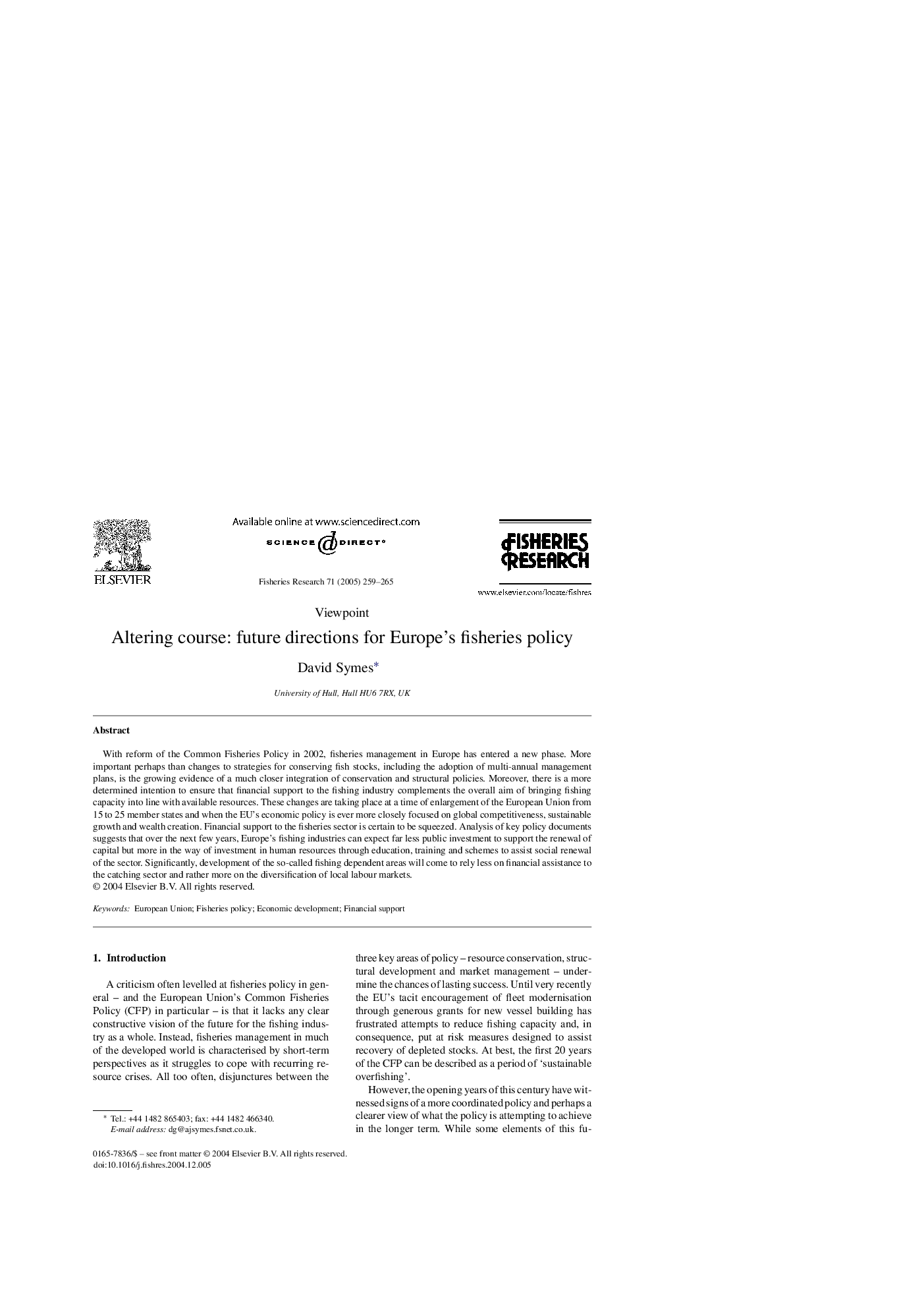| Article ID | Journal | Published Year | Pages | File Type |
|---|---|---|---|---|
| 9481682 | Fisheries Research | 2005 | 7 Pages |
Abstract
With reform of the Common Fisheries Policy in 2002, fisheries management in Europe has entered a new phase. More important perhaps than changes to strategies for conserving fish stocks, including the adoption of multi-annual management plans, is the growing evidence of a much closer integration of conservation and structural policies. Moreover, there is a more determined intention to ensure that financial support to the fishing industry complements the overall aim of bringing fishing capacity into line with available resources. These changes are taking place at a time of enlargement of the European Union from 15 to 25 member states and when the EU's economic policy is ever more closely focused on global competitiveness, sustainable growth and wealth creation. Financial support to the fisheries sector is certain to be squeezed. Analysis of key policy documents suggests that over the next few years, Europe's fishing industries can expect far less public investment to support the renewal of capital but more in the way of investment in human resources through education, training and schemes to assist social renewal of the sector. Significantly, development of the so-called fishing dependent areas will come to rely less on financial assistance to the catching sector and rather more on the diversification of local labour markets.
Related Topics
Life Sciences
Agricultural and Biological Sciences
Aquatic Science
Authors
David Symes,
